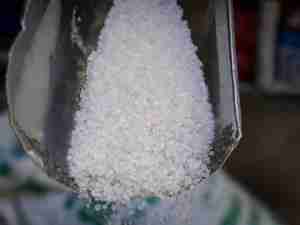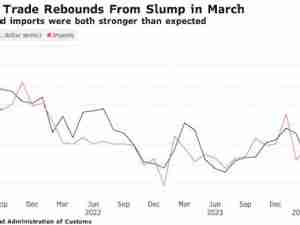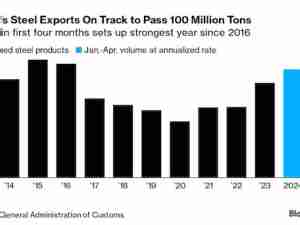"It's progress and ... now we will look forward to seeing results," said White House press secretary Scott McClellan.
President Bush pressed the same message Wednesday morning in a meeting with Chinese Vice Premier Wu Yi, who led the Chinese delegation to the Washington meetings between the two sides that led to a series of deals announced on April 11. Bush thanked her for "efforts to make US-China trade more equitable" but pressed for Chinese President Hu Jintao, during his visit to the White House next week, to "explain to the American people how China will meet the challenge of rectifying global economic imbalances," McClellan said.
US industry groups also said the real test of the agreements could come during the talks between Bush and Hu this week.
The top economic officials meeting in a leadup to those discussions reached agreement in which China pledged to lift its ban on American beef, crack down on the sale of pirated computer software and begin negotiations on allowing foreign firms to compete for Chinese government contracts.
American industry groups were generally pleased with the results of an annual meeting of the Joint Commission on Commerce and Trade, which was created in 1983 to resolve trade frictions between the two nations.
Frank Vargo, vice president for international trade at the National Association of Manufacturers, called the deals announced Tuesday "incremental contributions to the removal of trade obstacles."
But he said he was hopeful that they will set the stage for a significant breakthrough during the Bush-Hu summit on the issue of currency.
American manufacturers contend that China is depressing the value of its currency by as much as 40% to make Chinese goods cheaper for US consumers and American products more expensive in China.
While China has allowed the value of the yuan to rise by a little over three percent in the past year, US companies contend the Chinese are going far too slowly in dealing with what could make a big difference in narrowing the trade gap.
Bush, citing America's $202 billion deficit with China, said he was hopeful that Hu would address the currency issue during his visit.
The talks were led by Commerce Secretary Carlos Gutierrez and US Trade Representative Rob Portman. Both praised the Chinese for the commitments they did make.
"In our discussions today, which were very frank and positive, we were able to solve some problems," Portman said at a joint closing news conference.
Wu said her country has been "earnestly implementing" the directions of China's top leaders to boost imports from the United States.
China agreed to move to lift the beef ban it imposed after the first case of mad cow disease was discovered in the United States in December 2003 but said it would do so only after certain technical issues were resolved.
US Agriculture Secretary Mike Johanns predicted those details would soon be worked but he refused to give a timetable of when beef shipments could resume.
On copyright piracy, China agreed to require that all computers sold in the country be loaded with legal operating software and to increase enforcement efforts against all forms of copyright piracy.
The Chinese have made previous pledges to crack down on copyright piracy but piracy rates for computer software remain near 90 percent. Gutierrez said the US government would be closely monitoring implementation of the agreements.
"As in everything else, the numbers will ultimately tell the story," he told reporters.
Wu noted that she was traveling with a delegation of more than 200 Chinese business executives with the expectation that they will sign 107 contracts to buy $16.2 billion in US products during stops in a number of states.
Those deals included the signing on April 11 of a purchase agreement for 80 commercial jetliners from Boeing









